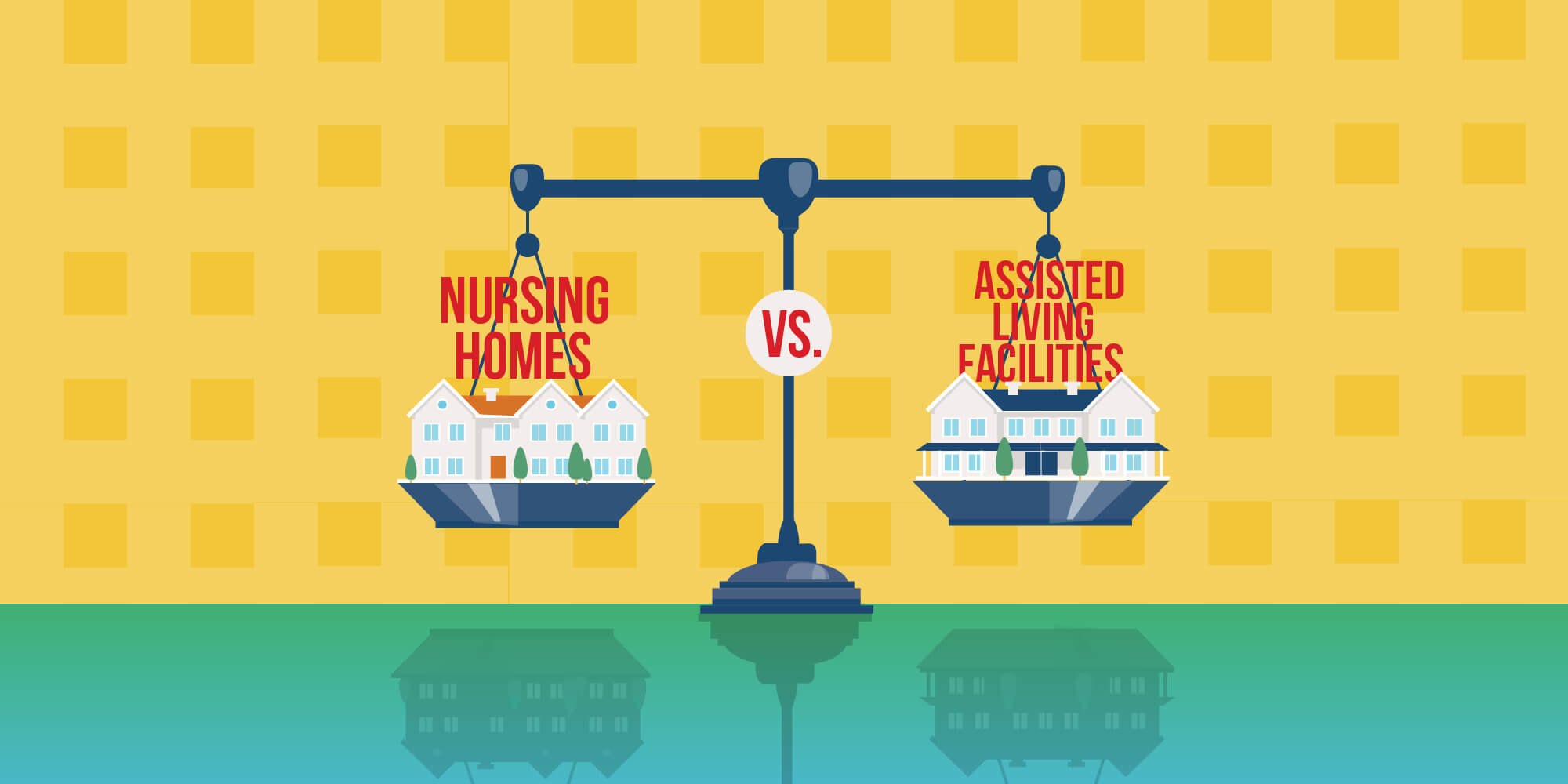What Is Assisted Living?
Assisted living is often confused with nursing home care though the two are not exactly the same. Instead of searching the web for “assisted living vs nursing home” or “home care vs nursing home”, continue reading below. We have the inside scoop on assisted living, nursing homes and home care.
Let’s take a look at the difference between assisted living and home care, nursing care and more. Assisted living is exactly as it sounds in that it provides a helping hand with the activities of daily living. However, there is a distinction of note. Assisted living centers that are separate from patients’ homes are not the same as assisted living within a patient’s home.
A patient who transitions away from the house to assisted living becomes reliant upon others for assistance with daily care in an institution as opposed to a house or apartment. However, the upside to assisted living is the fact that a professional caretaker is available to provide the patient with ongoing assistance as necessary.
Assisted living provided within the home empowers the patient to remain where he or she is comfortable. When such care is provided in the home, the patient enjoys assistance with everything from personal grooming to dressing, using the bathroom, meal prep, laundry, medication reminders, mobility assistance and more. Assisted living ultimately provides personalized care that improves a patient’s quality of life, support, safety and well-being.
When do elderly need assisted living?
Elderly individuals need assisted living when they can no longer live autonomously. Autonomous individuals are self-reliant and do not require outside assistance. If you notice your parent, grandparent, aunt, uncle or other relative is struggling to bathe, dress, perform personal grooming, prepare meals or remember to take medication, it is a sign he or she needs help. Assisted living in the home might be the answer.
Assisted living is especially important for seniors who run the risk of a health problem due to forgetfulness or neglect. If you suspect the senior you love so much might forget to take medication, refuse to bathe or perform another activity essential for health and wellness, don’t hesitate to coordinate assisted living. Even a worsening medical condition, social isolation or frailty is reason enough to consider the merits of assisted living for the elderly.

What Is A Nursing Home?
Nursing homes are distinct from at-home care in that they provide patients with assistance in an institutionalized setting. Nursing homes provide ‘round the clock care for patients who permanently reside in a care facility. Modern day nursing homes are thoroughly regulated and typically reserved for individuals who are octogenarians (80+) or older. However, some nursing homes have patients at or around 65 years of age.
Nursing homes are especially helpful for individuals who need assistance with the activities of daily living or ADLs for short. The vast majority of those who living nursing homes need assistance with bathing dressing and another ADL that ultimately makes life in a nursing home somewhat appealing.
Who Can Benefit From a Nursing Home?
Individuals who are old, have dementia or struggle with physical and/or mental health challenges can benefit from nursing home care. If you have a loved one who struggles to take care of him or herself at home and needs assistance with several ADLs, it is in your interest to consider the merits of both assisted living and a nursing home. The extent of the care necessary will ultimately play a significant part in determining which of the two is the better option for your loved one.
Difference between assisted living and nursing home
Senior assisted living and nursing homes for seniors are not synonymous with one another. Though both provide forms of care for elderly individuals, they have important differences of note. Nursing homes are distinct facilities in which professional medical care is available ‘round the clock. Assisted living is assistance provided in-home by a medical professional.
If the senior in your life cannot live alone yet does not want to transition to a nursing home, assisted living is worth considering. However, a senior who needs assistance with the majority of ADLs and cannot maintain a home or perform sufficient self-care will understandably lean toward nursing home care.
Medication services for elderly
If you are like most people, you worry about your parent, grandparent or other senior you love taking too much medication, forgetting to take it on a daily basis or not taking it as otherwise instructed by the treating physician. Instead of hoping that the senior you love so much remembers to take his or her medication at the right dosage at the ideal time of the morning, day or night, rely on medication services for elderly for invaluable reassurance.
A medication service for the elderly does more than merely serve as a daily reminder to take medication. Medication services elderly also double-check dosage levels and the frequency of intake. Medication services are especially important for those who have dementia, those who take several medications and those who are recovering from illness or surgery.
Living Space
Assisted living provided within the home allows the patient to remain in the comfort of his or her house or apartment. Alternatively, assisted living facilities are characterized by patients living in shared spaces. Though assisted living facility residents have their own bedrooms, they do not always have their own kitchen or living room. Some assisted living facilities offer furnished areas.
Nursing homes typically have an individual room or a shared room along with an en-suite style bathroom. Certain nursing homes and assisted living facilities have common social spaces where residents share meals and engage in social activities.

Cost
The plain truth of the matter is healthcare in the United States is not cheap. The American Health Care Association reports nursing home care is two times that of assisted living residences. However, assisted living care in the home is comparably affordable and empowers your loved one to remain in the comfort of home. In general, a semi-private nursing home room is likely to cost $90,000 or more per year. Alternatively, assisted living costs half that amount or less, depending on the patient’s insurance coverage.
Why choose assisted living?
Assisted living is affordable, convenient, warm and stimulating. Assisted living in the home empowers patients to stay where they are comfortable and happy. Opt for assisted living and the senior in your life will get the most out of his or her golden years.


